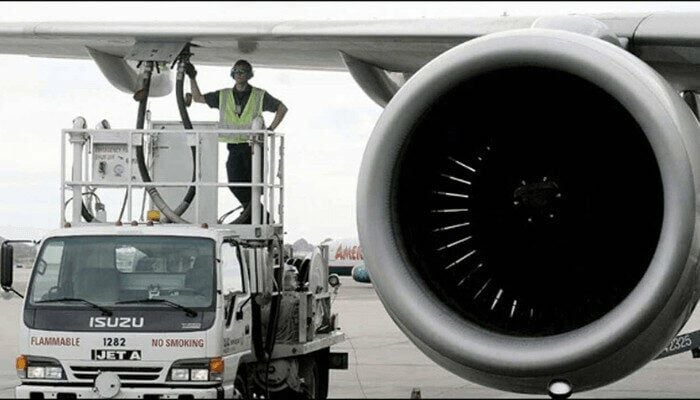The former managing director of Arik Air, Chris Ndulue, has raised concerns over what he described as the emergence of a black market within Nigeria’s aviation fuel supply chain.
Speaking at a colloquium organised by CITA Energies Limited with the theme: “Aviation Fuel Business: The Scenario and the Metaphor”, he said the development is a dangerous development borne out of desperation among weak marketers.
He said the trend posed serious safety and quality risks to the nation’s aviation industry.
“We already have a black market developing. Some marketers are so weak that they buy aviation fuel in jerrycans or from stolen sources. Once that market thrives, it poses a huge safety risk for the entire industry.”
However, he warned that the current structure could undermine safety, quality, and sustainability in the sector if not urgently addressed.
He lamented that the country now has 36 aviation fuel marketers serving only eight airlines, a ratio he said reflects deep structural inefficiency.
According to him, such fragmentation leaves most marketers financially weak and unable to meet the minimum capital requirements to source quality aviation fuel from credible suppliers.
“What we have today is worrying. Those 36 marketers will be on the fence. Many are too weak to operate safely or to provide reliable fuel services. If your financial health is not strong, you cannot go to the right source to buy products — you can’t just go to Dangote Refinery and take two trucks; there’s a minimum order quantity that costs close to N1.5 billion.”
Ndulue, also the managing director of Ndano Energy, called for stronger collaboration among marketers and regulatory oversight from the Nigerian Civil Aviation Authority (NCAA) to assess and ensure the financial health of fuel suppliers, just as is done for airlines.
He warned that without such measures, the sector risked further deterioration, with the exit of major players already creating gaps that smaller, undercapitalised companies struggle to fill.
Despite these challenges, Ndulue acknowledged that regulation has become easier with the commencement of large-scale local production.
He noted that about 90 per cent of aviation fuel in Nigeria now comes from the Dangote Refinery, providing traceability and quality assurance that were difficult to achieve when products were largely imported.
“Today, because the products are made in Nigeria, regulators can trace them directly to the refinery and verify their quality,” he said.
“However, we must still be vigilant, as some supplies come from modular refineries or residual imports. The NMDPRA and NCAA must ensure that only certified facilities supply aviation fuel to airlines.”
He emphasised that ensuring fuel marketers’ financial stability, regulatory compliance, and cooperation is key to sustaining safe and efficient aviation operations in Nigeria.
He warned, “Unless we strengthen the marketers, we may not have the kind of aviation fuel supply system the industry truly needs.”





